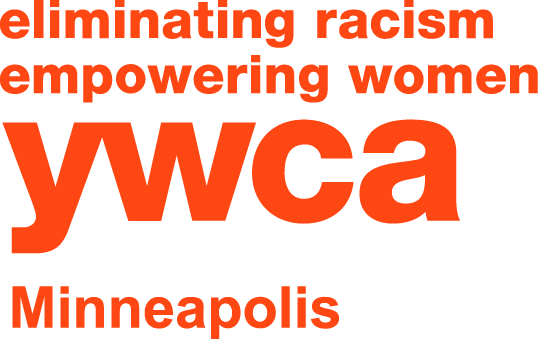The Language of Solidarity
April 13, 2022
How do we talk about our work to support justice? As we work for social justice in our environments and spheres of influence, we might encounter several different ways of describing how we show up in our community. In this blog, we explore some of the language considerations for describing work for equity and justice. In particular, those of us who occupy identities of privilege or dominant culture identities can be conscious of our language to avoid being performative in our work.
Privilege: Certain advantages, benefits or degrees of respect that an individual has simply by belonging to certain identity groups.Dominant culture identities: Identities that reflect the status quo that is reflected to us in leadership, governance, the media, beauty standards, measures of professionalism, narratives, examples on tests, etc.
Ally
Allyship is stepping up and stepping in to be in solidarity with one another. However, Dr. Muna Abdi, education consultant and independent researcher, writes about ceasing to use terms of allyship and privilege in anti-racism work, citing critical thinking around the ways that this language creates oppressive hierarchies, centers whiteness and is typically shaped by those who have structural advantage, without highlighting their stake in the struggles of work for justice. She reminds us that “language is not fixed, it is dynamic and just as it shapes, it too is shaped.”
Accomplice
The original definition of an accomplice is to help someone to commit a crime or do something wrong, but the term is also used to describe contributions to justice work. Tufts University’s Anti-Racism Resource Guide teaches that “Indigenous activist culture suggests the term ‘accomplice’ is...used.” In a post from YWCA Seattle | King | Snohomish, AnnaLee Schafranek writes that “in the context of race and social justice work, an accomplice is someone who assists others in creating a space of inclusion, equity and safety for all, often at the risk of their own social and/or professional standing and physical well-being.”
Co-Conspirator
Schafranek says, “Alicia Garza, activist and co-founder of the Black Lives Matter movement, described that ‘co-conspirators are people who are actively fighting against the system of white supremacy and in particular the benefits they receive from it.’ This provides a better framework for understanding what is traditionally known as allyship, which is a term that does not encompass the action of rejecting the benefits one receives from white supremacy."
Comrade
In her book "Comrade: An Essay on Political Belonging," Jodi Dean describes being a comrade “as the special bond between people ‘on the same side’ committed to equity and (often to) communism, accountable to one another in sharing risks and responsibilities, and a strong sense of belonging. It is not a supportive, second-class position as an allyship is.” She speaks of a comrade as a "political relation between those on the same side of a political struggle … for a political purpose. … We have to be able to trust one another.”Karen Tronsgard-Scott, Executive Director of the Vermont Network Against Domestic and Sexual Violence writes, “As an ally, I would have been willing to roll up my sleeves and do the right thing, maybe risking some of my social cache with the other executive directors. But to be a comrade is to be fierce and to take action to upend the status quo. As a comrade, I would have gotten right up to clean up and I would have demanded that the other white women clean up. I would be willing to risk social standing, ambition, and acceptance by my peers to do the right thing.”It is interesting to note that much of the language used about solidarity and organizing work mirrors language used in times of war and conflict. We might consider this as we choose how to describe our efforts moving forward.
Things to Remember
While there isn’t necessarily one way or a right way to talk about solidarity, it’s important for us to keep a few things in mind:
- Understanding the meanings and the context of language. Why are we using this language? There is such power in our words.
- Using descriptors as verbs, not nouns. Solidarity does not involve a static title of "ally," "accomplice," "comrade," or "co-conspirator," but rather continued learning and unlearning in pursuit of just actions. A "journey of allyship," we might consider.
- What’s at stake? One of the delineations between a performative descriptive title and a way of being with no arrival point is making decisions that require sacrifice, giving up power, and making waves in our spheres of influence.
Resources For Further Learning
- The Differences Between Allies, Accomplices & Co-Conspirators May Surprise You – Dr. Tiffany Jana
- Language is important: Why we are moving away from the terms ‘allyship’ and ‘privilege’ in our work – By Dr. Muna Abdi
- Making The Transition from Ally to Co-conspirator: For White People, From a White Person – MJ Knittel
- What’s the Difference Between An Ally And Accomplice? - AnnaLee Schafranek, Washington State YWCA
- Comrade or Ally? Book Review of : COMRADE, An Essay on Political Belonging by Jodi Dean – The Multiracial Unity Blog
- Humanize My Hoodie Ally Workshop
- Ally or co-conspirator? What it means to act #InSolidarity – Move to End Violence
- Tufts University Anti-Racism Resource Guide
Learn About Include™ Diversity & Inclusion ConsultingLearn More about YWCA Racial Justice Programs
